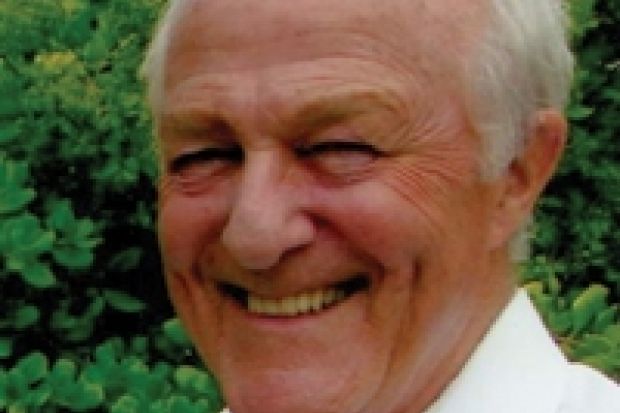Royston Kenneth Penny was born on 17 June 1931 in East Ham, East London. His research explaining how materials deform (or "creep") at high temperatures was crucial in facilitating the design of nuclear plants.
Professor Penny taught his mother to read and write. His father, an illiterate construction worker, lost most of his eyesight in his late thirties to a hereditary disease.
After attending Buckhurst Hill County High School for Boys, Professor Penny studied at the University of Bristol, graduating in engineering in 1954.
He went on to take up a sequence of industrial appointments in the UK and in North America, including with aircraft manufacturer AVRO Canada.
In 1964, he became assistant director of research in the engineering department of the University of Cambridge and was appointed to set up a "creep laboratory".
Engineers in the 1960s and 1970s encountered critical new issues when designing nuclear plants because their higher temperatures, aggressive environments and long lifespans demanded a fresh approach to material deformation and degradation. The laboratory's development of reliable and consistent data and testing methods began the process of understanding the relationship between creep behaviour and the long-term failure of materials, which continues to underpin modern design.
While at Cambridge, Professor Penny also became a founding fellow of University College (now Wolfson College). In 1967, he was appointed to the chair of mechanical engineering (engineering design and production) at the University of Liverpool. After 11 years there, he returned to industry before being appointed head of the department of mechanical engineering at the University of Cape Town in 1985, retiring six years later.
In 1994, Professor Penny began organising a series of conferences in Cape Town for South Africa's engineering and academic communities, although later in life he developed Alzheimer's disease and was unable to continue.
Alan Ponter, emeritus professor of engineering at the University of Leicester, paid tribute to his Cambridge colleague's "significant contribution" to his field. "He was an uncompromising character - never one to play along with university politics," Professor Ponter said. "Although I found him extremely stimulating, and was very fond of him, the department found him very difficult to handle. But those who were willing to listen to him learned an awful lot."
Professor Penny died of a lung condition on 7 September 2012. He is survived by his first wife Shirley, four children, six grandchildren and his third wife Charmaine.
Register to continue
Why register?
- Registration is free and only takes a moment
- Once registered, you can read 3 articles a month
- Sign up for our newsletter
Subscribe
Or subscribe for unlimited access to:
- Unlimited access to news, views, insights & reviews
- Digital editions
- Digital access to THE’s university and college rankings analysis
Already registered or a current subscriber?
